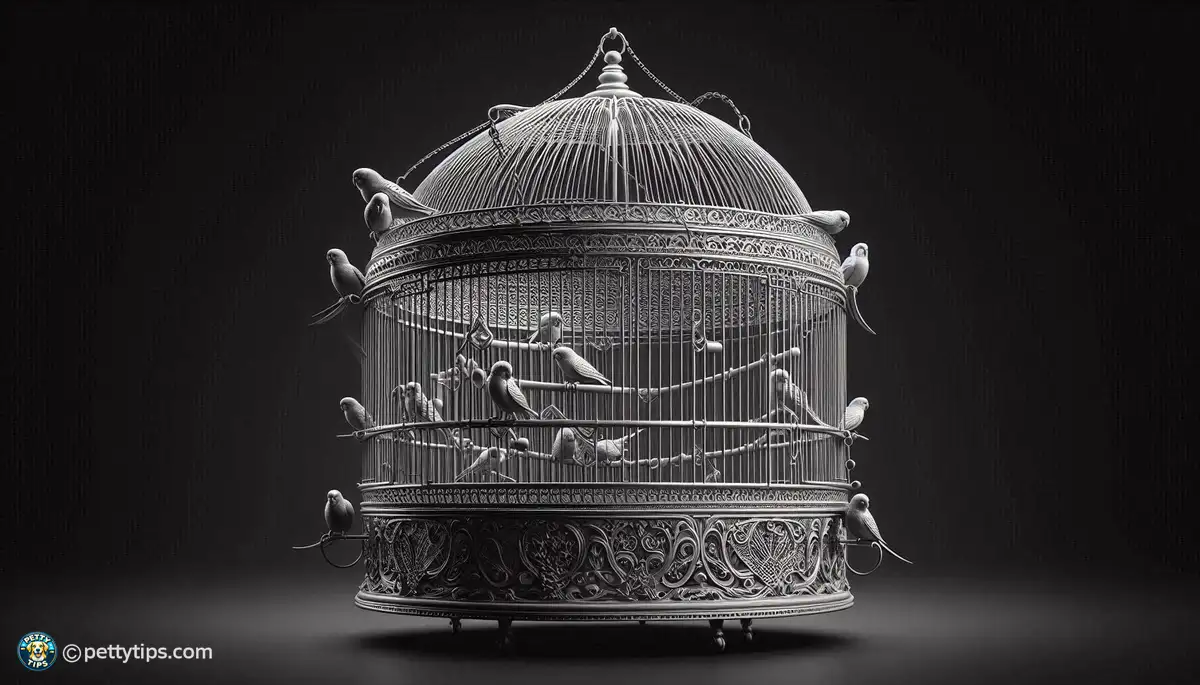Building a Safe Haven: Exploring Materials for Bird Cage Construction

The Role of Materials in Avian Well-being
As a devoted pet owner, providing a safe and comfortable living environment for your feathered friend is paramount. When it comes to bird cage construction, the materials used play a significant role in ensuring the well-being and health of your avian companion. Birds spend a considerable amount of time inside their cages, making it essential to choose materials that are not only durable but also non-toxic and safe for prolonged exposure.
Potential Risks of Unsafe Materials
Using improper materials in constructing bird cages can pose various risks to your avian friend's health. Toxic fumes emitted from certain materials can lead to respiratory issues and other health problems in birds. Additionally, some materials may harbor bacteria or fungi, increasing the risk of infections. Therefore, it's crucial to be mindful of the materials chosen for your bird's cage to prevent any potential harm.
Exploring Safe Materials for Bird Cage Construction
Stainless Steel: A Top Choice for Avian Homes
Stainless steel stands out as one of the safest and most durable materials for bird cage construction. Its non-toxic properties make it an excellent choice for housing birds, as it does not release harmful chemicals or toxins that could endanger their health. Additionally, stainless steel is resistant to rust and corrosion, ensuring the longevity of the cage.
Powder-Coated Metal: Combining Safety with Aesthetic Appeal
Powder-coated metal offers both safety and aesthetic appeal, making it a popular choice among bird owners. The powder coating provides an additional layer of protection against rust and corrosion while also allowing for customization in terms of color and design. However, it's essential to ensure that the powder coating used is non-toxic and bird-safe to avoid any potential health hazards.
Wrought Iron: A Classic and Reliable Option
Wrought iron has long been favored for its durability and classic appearance in bird cage construction. When properly maintained, wrought iron cages can last for years while providing a safe and secure environment for birds. However, it's crucial to choose a cage made from wrought iron that is free from lead or other harmful additives that could pose risks to your bird's health.
Aluminum: Lightweight and Non-Toxic
Aluminum is another lightweight and non-toxic option for bird cage construction. It offers durability without the risk of rust or corrosion, making it suitable for both indoor and outdoor use. However, it's essential to ensure that the aluminum used is of high quality and free from any coatings or finishes that could be harmful to birds.
Acrylic: A Modern and Safe Alternative
Acrylic bird cages have gained popularity in recent years due to their modern appearance and safety features. Acrylic is lightweight, durable, and easy to clean, making it an excellent choice for housing birds. Additionally, acrylic cages provide excellent visibility, allowing you to enjoy observing your feathered friend without any obstructions.
Natural Wood: Bringing a Touch of Nature Indoors
For bird owners looking to bring a touch of nature indoors, natural wood cages can be an attractive option. However, it's crucial to choose untreated or safely treated wood that is free from harmful chemicals or toxins. Wood cages should also be regularly inspected for any signs of wear or damage to ensure the safety of your bird.
Glass: A Unique and Modern Choice
Glass bird cages offer a unique and modern alternative to traditional metal or wood cages. They provide excellent visibility and can create a stunning display piece in any home. However, it's essential to ensure that the glass used is sturdy and shatterproof to prevent any accidents or injuries to your bird.
Bamboo: Eco-Friendly and Safe
Bamboo cages have gained popularity among environmentally conscious bird owners due to their eco-friendly properties. Bamboo is a sustainable and renewable material that is also safe for birds. However, it's crucial to choose bamboo that has been treated to prevent mold or mildew growth and to ensure the longevity of the cage.
PVC: Lightweight and Durable
PVC bird cages offer a lightweight and durable option for housing birds. PVC is resistant to moisture and easy to clean, making it suitable for both indoor and outdoor use. However, it's essential to ensure that the PVC used is free from harmful additives such as phthalates, which can be toxic to birds.
Food-Safe Plastics: A Budget-Friendly Option
For bird owners on a budget, food-safe plastics can be a cost-effective option for constructing bird cages. However, it's crucial to choose plastics that are free from harmful chemicals such as BPA and phthalates, which can pose risks to your bird's health. Additionally, plastic cages should be regularly inspected for any signs of wear or damage to ensure the safety of your bird.
Conclusion: Prioritizing Safety in Bird Cage Construction
Ensuring the safety and well-being of your feathered friend begins with choosing the right materials for their cage. By opting for non-toxic, durable, and easy-to-clean materials, you can provide a safe and comfortable living environment for your avian companion. Whether you prefer the classic appeal of stainless steel or the modern look of acrylic, there are plenty of safe options available to suit every bird owner's preferences and budget. Remember to regularly inspect and maintain your bird's cage to ensure its continued safety and enjoyment for years to come.
